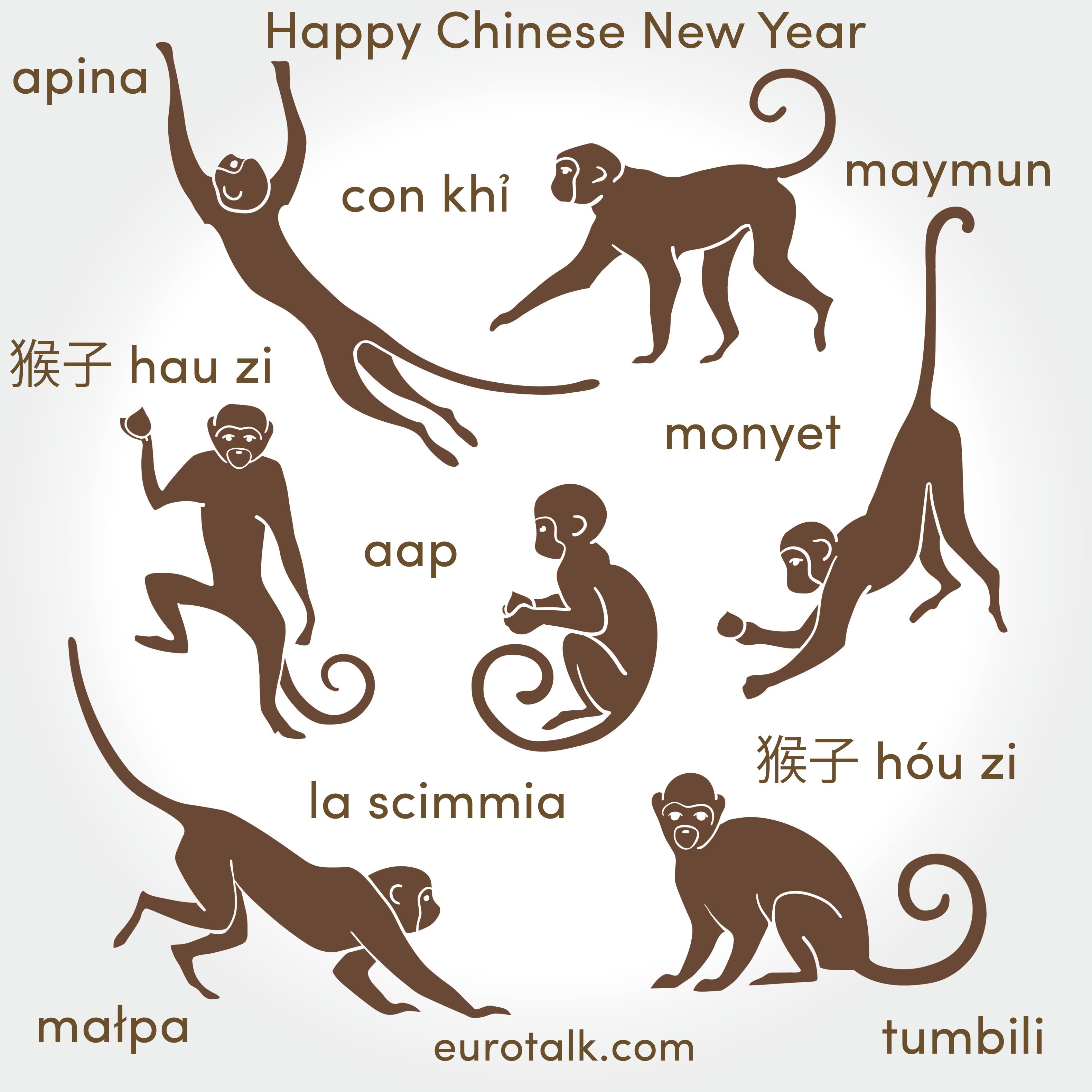The Year of the Monkey
Happy Chinese New Year!
Today is the first day of the Chinese Lunar New Year. The period before Chinese New Year is one of the biggest annual migrations of people, all going home to their families to celebrate together. This is for the New Years Eve dinner, also known as the reunion dinner, normally done at home rather than in a restaurant. A variety of dishes are served at the reunion dinner, these usually include fish and dumplings, which signify prosperity. It also includes lettuce, shallots, celery, duck and Chicken – each of these represent a different attribute.
The Chinese Zodiac has a different animal representing a year on a 12-year cycle. Meaning that the year of the Monkey hasn’t happened since 2004 and won’t happen again until 2028. The monkey is the 9th animal in the Zodiac and each animal is said to have different attributes. If you were born in the year of the Monkey, you’re thought to be sociable and innovative. Every zodiac sign has lucky numbers, colours, flowers and even directions. Next year the year of the Rooster will be celebrated.
Chinese New Year is celebrated with the colour red, which is seen as a sign of good fortune. Red envelopes/packets with money in, called Ang Pow are given on Chinese New Years and are a sign of future success. It is also seen as favourable to give an even amount of money rather than an odd amount. These are very different to Pak Kum, which are white envelopes given at sad occasions like funerals.
There are many taboos, which surround the New Year, these are things that shouldn’t be done on the first day of the year.
- Washing your hair – this shouldn’t be done, as it’s a sign of washing away good fortune.
- Taking medicine – if you take medicine on the first day this means you will be sick for the whole year.
- Wearing black or white – these are mourning colours.
Do you have or know of any Chinese New Year traditions? Let us know!
How does a Greek person say ‘it’s all Greek to me’?
‘It’s all Greek to me’. This is what an English speaker might say when they don’t understand something at all. In this context the Greek language is used as a metaphor for ‘something incomprehensible’.
So that got us thinking here at EuroTalk… if an English speaker uses Greek, what does a Greek speaking person use? And in fact how does this expression translate in other languages?
Well as it turns out there is a (somewhat complicated sounding) term for this – ‘language of stereotypical incomprehensibility’. So Greek is the language of stereotypical incomprehensibility in English.
Other languages have similar expressions and they usually pick as a metaphor for ‘impossible to understand’ a foreign language with an unfamiliar alphabet or writing system.
To answer our original question: in Greek the language used as a metaphor for incomprehensibility is Chinese.
Chinese actually turns out to be the most popular choice as a synonym for ‘I do not understand’ and is used in many languages, including Albanian, Arabic, Bulgarian, Catalan, Dutch, Estonian, French, Greek, Hebrew, Hungarian, Latvian, Lithuanian, Polish, Portuguese, Romanian, Russian, Serbian, Spanish, Ukrainian.
Greek itself follows closely, and is used as a language of stereotypical incomprehensibility in: English, Afrikaans, Norwegian, Portuguese, Swedish, Spanish, Polish, Persian.
(Bonus fact: the origin of the phrase in some European languages can be traced to the Medieval Latin proverb, ‘Graecum est; non potest legi’, which translates to ‘It is Greek; it cannot be read.’)
Sometimes the language of incomprehensibility is not a specific human language at all. For example a Chinese (Mandarin) speaker would use something that translates roughly to ‘Ghost’s script’, ‘Heavenly Script’ or ‘Sounds of the Birds’. And a Cantonese speaker might say, ‘These are chicken intestines.’
And how about a constructed international language, such as Esperanto? As a tongue-in-cheek reference, an Esperanto speaker would say ‘That’s a Volapük thing’, Volapük being another constructed language (with about 20 speakers).
How about you? What language do you use to mean ‘incomprehensible’? And is your language used by any other languages as a synonym for ‘impossible to understand’?
Bonus points question:
What does a person whose mother tongue is Greek, but who also speaks English, say in English when they want to say ‘It’s all Greek to me’?
Nikolay
Quote of the week: 31 Jan 2015
“Teachers open the door, but you must enter by yourself.” Chinese proverb
For more like this, find us on Pinterest and We Heart It.
Embed This Image On Your Site (copy code below):
A language learning love story
Why learn a language this new year? Well, for one thing, you never know where it might take you.
Meet Ed. He thought he was just going out for a meal with friends. Little did he know what was about to happen…
And if Ed and Mei Li have inspired you to learn a new language, why wait? Download uTalk or visit our website now!






